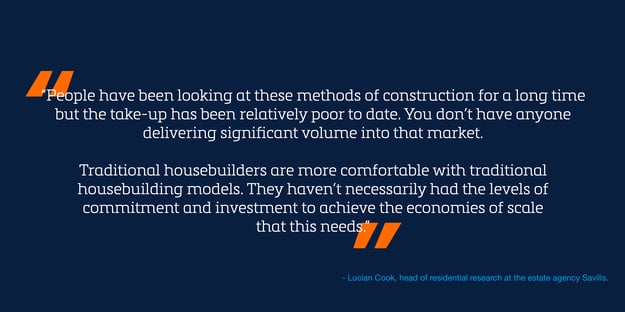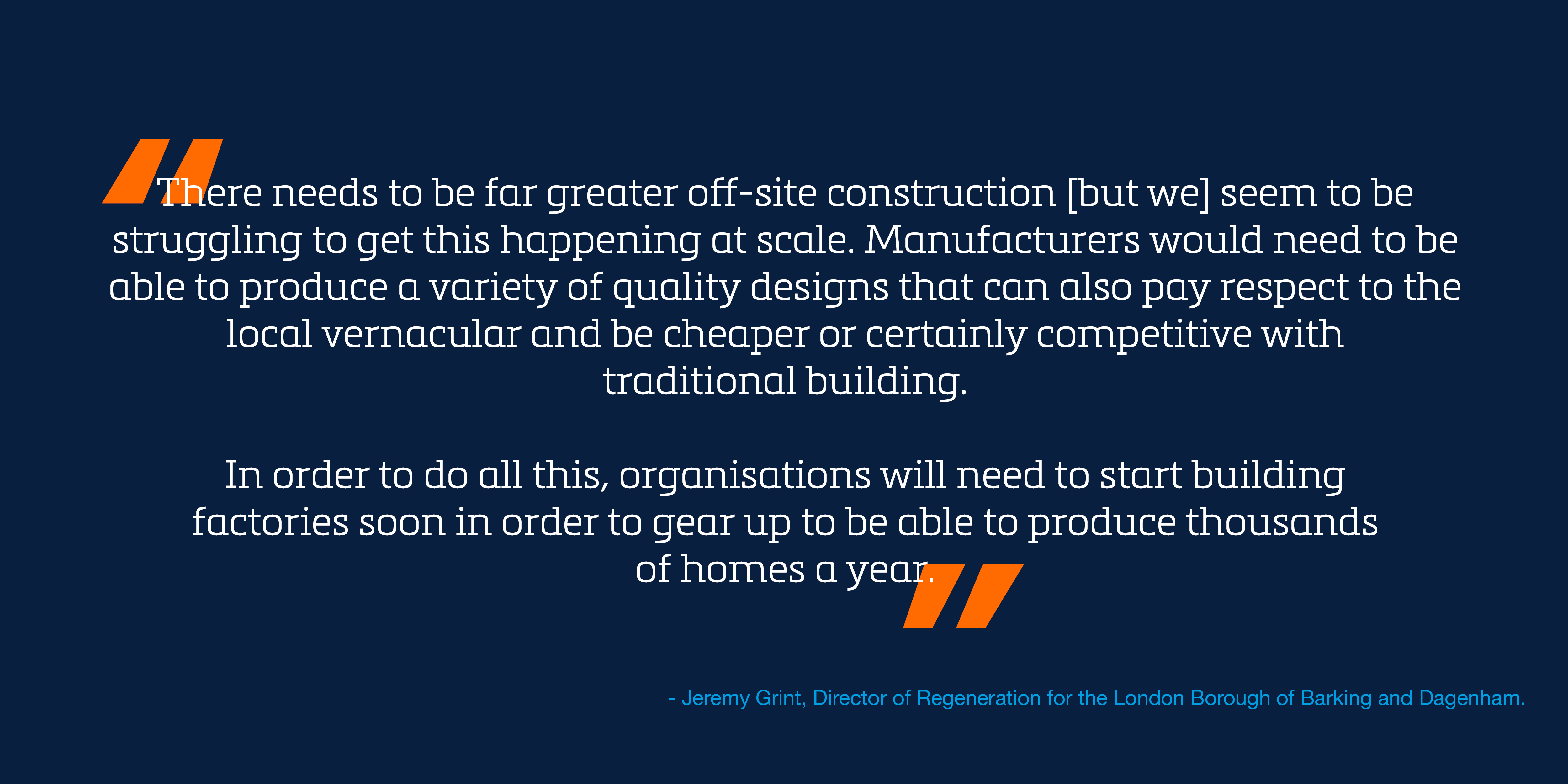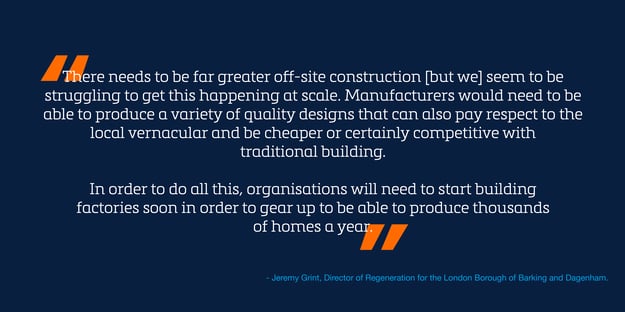£500m investment into off-site construction to solve UK housing crisis
With large volume builders struggling to keep up with the UK housing need, a number of opportunities are opening up in the market as SME builders and alternatives move in.
Because of the skills shortage (a hangover from the 2008 economic crash), the housing sector needs a disruptive approach which will enable it to deliver more homes. One approach is off-site construction, where structures are built in a factory and then transported to their final location.
Whilst the government have been toying with this approach for a while, they have yet to mobilise in a meaningful way. According to a government-commissioned report, published in 2013, volume housebuilders, (who together account for about two-thirds of all home sales) prefer traditional construction methods because they fit better with established business models.

However, a number of institutional investors have begun to seize the opportunity and are investing heavily in the housing sector.
Institutional Investment
In January, two of the UK's largest local authority funds - together with the British Business Bank - backed a £350 million UK direct lending fund launched by Muzinich & Co. You can read more about the story here. Now, a financial services giant has promised to boost off-site construction with a huge institutional investment.
Legal and General (L&G) has just invested £50 million into the construction of a factory in Leeds, which will aim to produce 3,000 houses or 4,500 flats per year. And that's only the beginning...
Using their newly-formed L&G Homes arm, the FTSE 100 company is set to invest a further £500 million in order to build similar factories across the UK. This is a huge game-changer for the sector and could act as a catalyst for other companies who are also considering using off-site construction methods.
The factories will produce complete homes with full internal features (including white goods) and modifiable designs. After being driven to their destination, the houses will be targeted to people on low to medium incomes.
"What we're doing is true off-site manufacturing. The process we use involves no tradesmen: zero [...] All the units are not a set pattern. You can have any design you wish. What we're looking to do is have a design where tenants and residents can come and almost design their own homes."
Positive impact
As well as the massive social impact of creating a large number of jobs in factories similar to car manufacturing plants, L&G Homes also promises environmental benefits. The houses will be built to a high standard of energy efficiency and are expected to cost just £85 a year to heat.
%20(3)%20(2).jpg)









